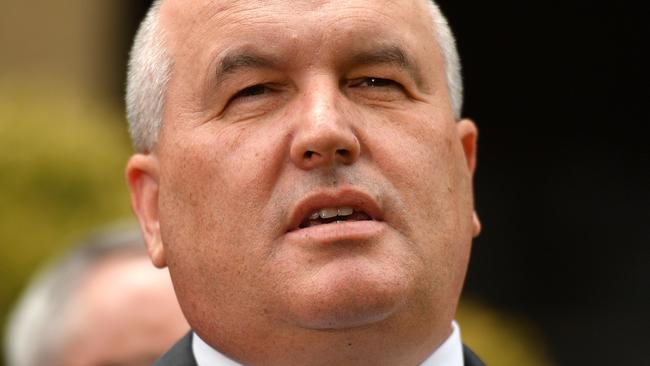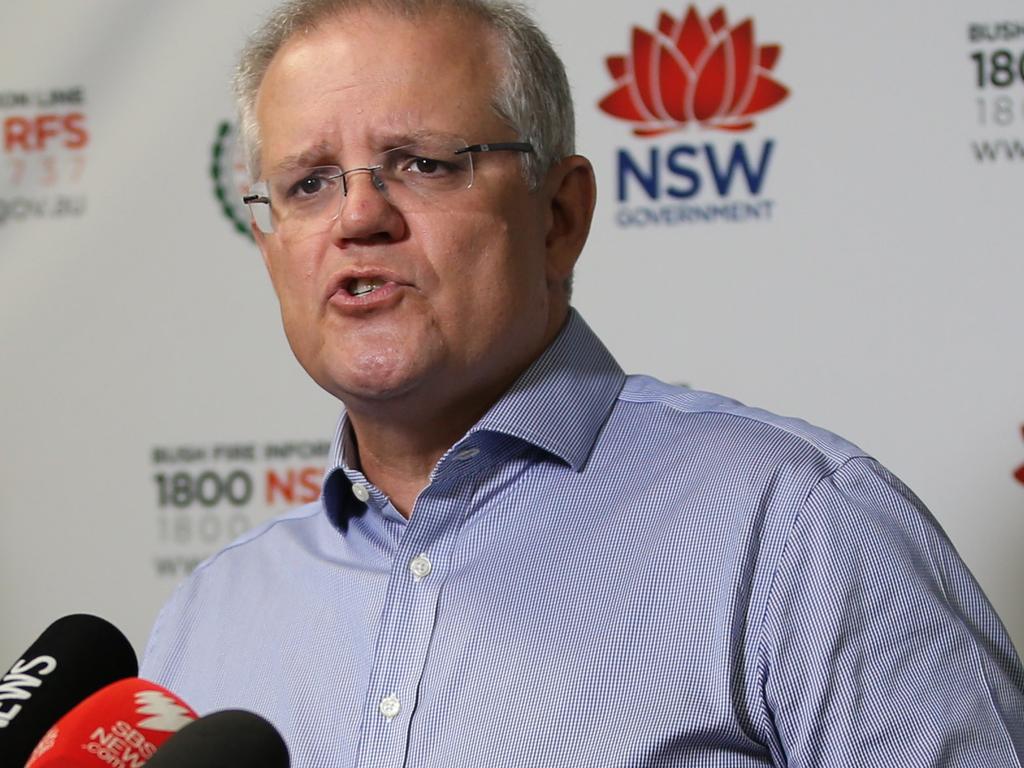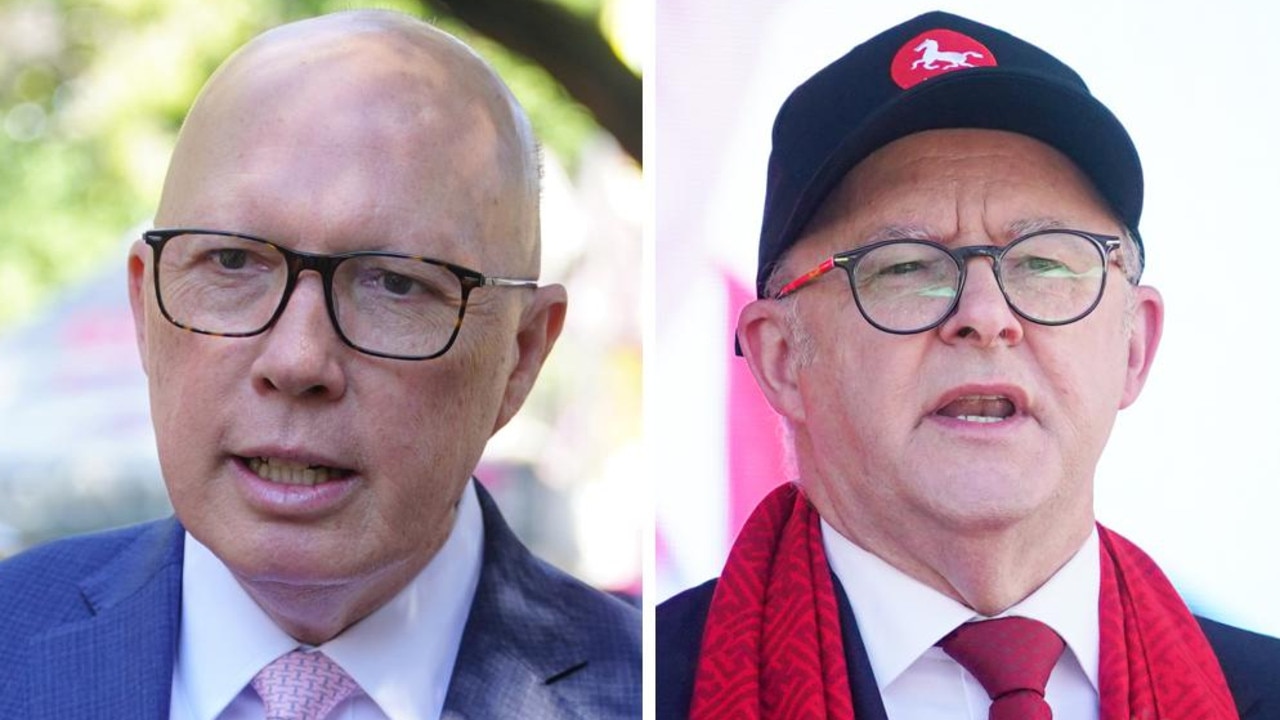Pay would threaten volunteer ‘ethos’ of RFS, NSW minister David Elliott warns
The minister in charge of dealing with the NSW bushfire crisis warns a plan to pay volunteers could compromise firefighting efforts.

The minister in charge of dealing with the NSW bushfire crisis has warned Anthony Albanese’s plan to pay volunteers could compromise firefighting efforts by reducing brigade numbers while undermining the volunteer ethos.
As the Opposition Leader pushed the Prime Minister to embrace his proposal to compensate volunteers, NSW Emergency Services Minister David Elliott said: “Anyone who is arguing we have to pay them doesn’t understand the ethos of the volunteer in this country.”
Mr Elliott said the proposal could lead to a cap in NSW Rural Fire Service numbers and limit the ability of fire chiefs to quickly deploy large numbers of volunteers as blazes escalated.
There are 70,000 volunteer members in the NSW RFS.
“The state government has never advocated for it and I am certainly not going to because, first of all there is no evidence that volunteers join up for money. And we have got 100 years of tradition to support that,” he said. “If we pay one volunteer emergency services organisation we are going to have to pay them all. That would be a very difficult thing to do.”
Mr Elliott said he had volunteer paramedics working for him when he was the state operations manager at St John Ambulance.
“Not once in all that time did anyone ask for compensation or financial reward. I struggle to get them to accept medals and commendations because nothing like that motivates them,” he said.
“I’m horrified that Anthony Albanese and Jodi McKay are using this crisis to score political points. When they were both respective ministers we had significant natural disasters. Never once during those times did either of them advocate for payment.”
The Prime Minister on Monday dismissed calls from Mr Albanese to bring forward a meeting of state governments to discuss bushfire management but argued it was important to look at better management of fuel loads in national parks and native vegetation clearing in the new year.
“There are a lot of issues that go into these fires and obviously the drought and the dryness of the fuel load is one,” Mr Morrison told 2GB. “I mean, how fuel loads are managed in national parks right around the country by state. Obviously, that’s an issue. Native vegetation clearing, how the rules sit around clearing trees that are close to your houses and all of this.” He urged those who had opposed fuel-reduction initiatives and greater land clearing to reconsider their position, arguing they had been “quite difficult”.
“They’re right to say these seasons are changing,” Mr Morrison said. “Well, it means that you’ve got to change those rules too, and they shouldn’t be resisted.”
Opposition emergency services spokesman Murray Watt said the Prime Minister should address the concerns with the states by bringing forward the planned March COAG meeting.
“This is exactly the kind of thing a COAG meeting could be discussing and that is why we called for a COAG meeting more than a month ago and why it should happen much sooner than March,” Senator Watt said.
“We think there needs to be a broad review of how we avoid and manage bushfires in the future and this is one of many issues that should be looked at.”
Queensland Fire and Emergency Services Minister Craig Crawford said the state was already reviewing the state’s response to bushfires in September and would make any necessary recommendations. Mr Crawford said the government’s record of hazard reduction burns in national parks — which covered almost double its target of 634,800ha in 2018-19 — and issuing of permits showed it had put safety first.
“That’s on top of the more than 15,000 hectares in burns under Operation Cool Burn and an average 27,463 hazard reduction permits issued each year since 2015,” Mr Crawford said.
Victorian authorities defended their fuel reduction efforts, pointing to a range of methods already implemented and a risk-reduction target that focuses on hazard reduction in areas close to communities and in the back country.
Environment Minister Lily D’Ambrosio said these efforts were intelligence-led. “We’ve learnt valuable lessons from the devastating Black Saturday fires and already introduced a range of changes to our fuel management program to keep Victorians safe.”
Mr Albanese on Monday reaffirmed his push for “compensation for volunteers and for businesses who support their staff who are volunteer firefighters”.
“I say to the Prime Minister he can do three things immediately … bring forward the COAG meeting. Meet the former fire chiefs. And do something now to provide support for those volunteer firefighters who have been in the field for such a long time. They are providing support for their fellow Australians. The Australian government should be providing them with more support in return,” he said.
Mr Albanese has suggested the compensation could come from the commonwealth in the form of tax concessions or a one-off leave payment to make up for lost wages while on the front line.
Volunteers who are injured receive compensation, as do families of firefighters killed on duty.
But Mr Elliott said paying volunteers could lead to a cap in numbers and undermine the NSW Rural Fire Service’s ability to call on large forces to battle blazes.
“Everything comes with a budget so if you put a wages budget into it then of course you would have to cap the numbers, and I’d be horrified if we needed to tell volunteers of 30 years’ standing that they could no longer be accommodated,” he said. “I’m not convinced at the moment there is a screaming demand to attract people to the organisation.
“In fact RFS will tell you that they have been overwhelmed with volunteers wanting to join the organisation since the crisis started.”
Additional reporting: Charlie Peel, Yoni Bashan







